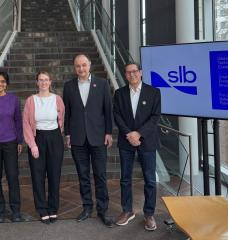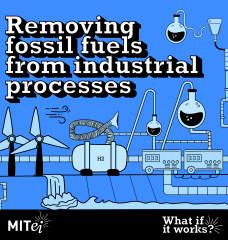
The MIT Center for Transportation and Logistics (MIT CTL) and the Council of Supply Chain Management Professionals (CSCMP) have released the 2024 State of Supply Chain Sustainability report, marking the fifth edition of this influential research. The report highlights how supply chain sustainability practices have evolved over the past five years, assessing their global implementation and implications for industries, professionals, and the environment.
This year’s report is based on four years of comprehensive international surveys with responses from over 7,000 supply chain professionals representing more than 80 countries, coupled with insights from executive interviews. It explores how external pressures on firms, such as the growing investor demand and climate regulations, are driving sustainability initiatives. However, it also reveals persistent gaps between companies’ sustainability goals and the actual investments required to achieve them.
"Over the past five years, we have seen supply chains face unprecedented global challenges. While companies have made strides, our analysis shows that many are still struggling to align their sustainability ambitions with real progress, particularly when it comes to tackling Scope 3 emissions," says Josué Velázquez Martínez, MIT CTL research scientist and lead investigator. "Scope 3 emissions, which account for the vast majority of a company’s carbon footprint, remain a major hurdle due to the complexity of tracking emissions from indirect supply chain activities. The margin of error of the most common approach to estimate emissions are drastic, which disincentivizes companies to make more sustainable choices at the expense of investing in green alternatives."
Among the key findings:
- Increased pressure from investors: Over five years, pressure from investors to improve supply chain sustainability has grown by 25 percent, making it the fastest-growing driver of sustainability efforts.
- Lack of readiness for net-zero goals: Although 67 percent of firms surveyed do not have a net-zero goal in place, those that do are often unprepared to meet them, especially when it comes to measuring and reducing Scope 3 emissions.
- Company response to sustainability efforts in times of crisis: Companies react to different types of crises differently in regards to staying on track with their sustainable goals, whether it is a network disruption like the Covid-19 pandemic or economic turbulence.
- Challenges with Scope 3 emissions: Despite significant efforts, Scope 3 emissions — which can account for up to 75 percent of a company’s total emissions — continue to be the most difficult to track and manage, due to the complexity of supplier networks and inconsistent data-sharing practices.
Mark Baxa, president and CEO of CSCMP, emphasized the importance of collaboration: "Businesses and consumers alike are putting pressure on us to source and supply products to live up to their social and environmental standards. The State of Supply Chain Sustainability 2024 provides a thorough analysis of our current understanding, along with valuable insights on how to improve our Scope 3 emissions accounting to have a greater impact on lowering our emissions."
The report also underscores the importance of technological innovations, such as machine learning, advanced data analytics, and standardization to improve the accuracy of emissions tracking and help firms make data-driven sustainability decisions.
The 2024 State of Supply Chain Sustainability can be accessed online or in PDF format at sustainable.mit.edu.
The MIT CTL is a world leader in supply chain management research and education, with over 50 years of expertise. The center's work spans industry partnerships, cutting-edge research, and the advancement of sustainable supply chain practices. CSCMP is the leading global association for supply chain professionals. Established in 1963, CSCMP provides its members with education, research, and networking opportunities to advance the field of supply chain management.






